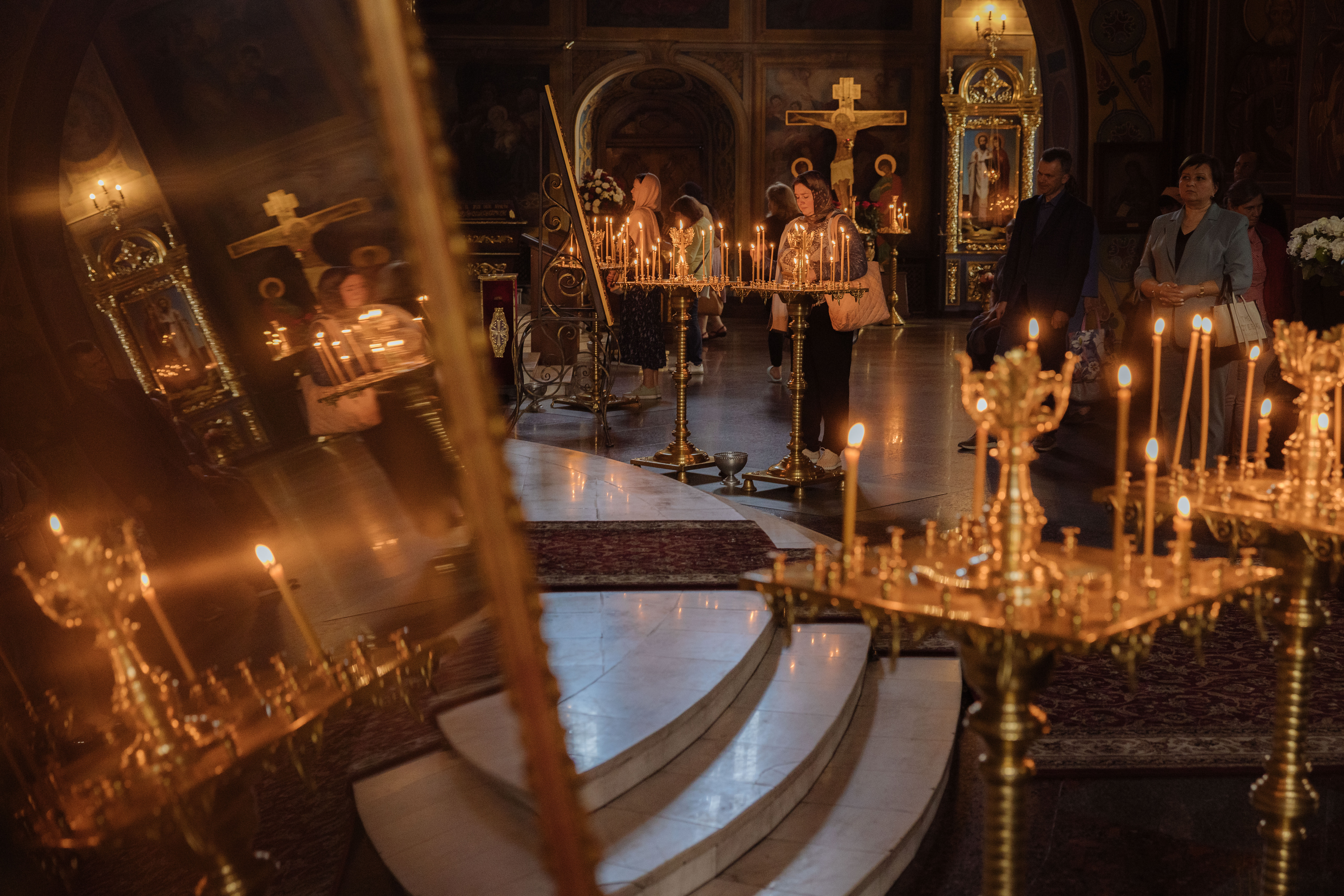[ad_1]

The exodus of parishes from the Moscow Patriarchate has meant rapid growth for the OCU, adding the equivalent of a “Cyprus or Macedonian Orthodox Church,” says Viktor Yelenskyi, a former parliamentarian who leads a state commission on freedom of conscience. A July 2023 letter from 300 priests still belonging to the Ukrainian wing of the Moscow Patriarchate urged its leader, Metropolitan Onufry — who has condemned Russian aggression without fully severing ties with Russian Orthodoxy — to formally remove his church from Moscow’s jurisdiction.
Maryan Martynenko, counsel to the OCU, jokes that the unification of two churches into the OCU was “the biggest M&A process in recent Ukrainian history.” Bringing the Moscow-aligned churches into the OCU would be an even bigger deal. The Ukrainian wing of the Moscow Patriarchate doesn’t want to settle with the OCU. But a shrinking flock, the ambiguity of their current status, and a government hostile to their connection with Moscow may force the question.
Metropolitan Klyment — a senior prelate in the Ukrainian wing of the Moscow Patriarchate — told me in an interview that “we have every reason to say that we are a church that is independent from Moscow.” Every reason, that is, except that they haven’t formally severed relations. Indeed, Father Hovorun says, “it’s impossible to be clear” about the current status of the church Metropolitan Onufry leads. “To Moscow they imply that we are with you still,” but to Ukraine, they imply the opposite.
Part of what’s keeping Orthodox Ukrainians from forming a single church is the Moscow Patriarchate’s yearslong polemic — in public and to parishioners — against the OCU’s clergy. One OCU prelate tells me that the Ukrainian wing of the Moscow Patriarchate demands, as a condition of rapprochement, that the OCU concede that many of its priests are not, in fact, priests. The nut of the controversy is priestly ordinations by a Ukrainian metropolitan who’d been defrocked — thus losing the power to ordain — by the Russian church in the 1990s. As part of the process ending in the OCU’s independence, the patriarch of Constantinople cancelled the Russian Orthodox Church’s decrees against the metropolitan. The cancellation doesn’t apply retroactively, so the priests the bishop ordained were validated through a well-precedented act of dispensation — a decree Klyment dubs a mere “certificate.”
Two pieces of legislation now before the Ukrainian Rada (the national parliament) would effectively prohibit Ukrainian churches from associating with the Russian Orthodox Church. Rostyslav Povlenko, a Rada member from ex-president Petro Poroshenko’s European Solidarity party, supports a bill that would make affiliation with the Russian Orthodox Church illegal and push its Ukrainian wing to reach terms of agreement with the OCU patriarch. But even proponents of the milder, government-backed bill believe it is wrong to treat any relationship with the Russian Orthodox Church as merely spiritual in character.
“The Moscow Patriarchate is not just helping Putin,” says Yelenskyi, whose commission is quite involved with Ukrainian church life. “It’s a normal participant in the aggression” and therefore “we shouldn’t allow these structures to operate.” Patriarch Kirill, head of the Russian Orthodox Church, he said, “elaborated a heretical teaching very close to jihad,” namely, that “if you would be killed on the battle line in Ukraine, your sins wash away.”
And suspicions occasionally swirl that Moscow-aligned priests are disloyal to the Ukrainian government. A senior prelate in the Ukrainian wing of the Moscow Patriarchate was recently sentenced to several years in prison for collaborating with Russia; junior clergy have been among those prosecuted for helping the invaders. Combine Russian Orthodoxy’s historical dependence on the Russian state, Kirill’s close relationship with the Kremlin, and the afflatus the patriarch employs in defense of Putin’s armies, and it’s understandable that so many Ukrainians see Kirill’s church as the propaganda organ of a hostile state.
Homosexuality has been been a central focus of Kirill’s campaign to recompose the Russki Mir. A March 2022 speech he gave in defense of the war asserted that “pride parades are designed to demonstrate that sin is one variation of human behavior. That’s why in order to join the club of those countries, you have to have a gay pride parade.” Putin’s own remarks on the subject usually employ phrases like “traditional values.”
It’s been reported that Ukrainian support for equal rights for LGBTQ people has doubled since the war began. Inna Sovsun, a parliamentarian sponsoring legislation to legalize civil partnerships between any two adults, put it this way in a recent interview: “Because Putin made homophobia such a big part of his political agenda and [Russian] national ideology, people automatically associate him with homophobia.” Edward Reese, a communications officer for the organization Kyiv Pride, says that “Russia is exporting its homophobia and transphobia to … post-Soviet countries” like Ukraine.
[ad_2]
Source link
